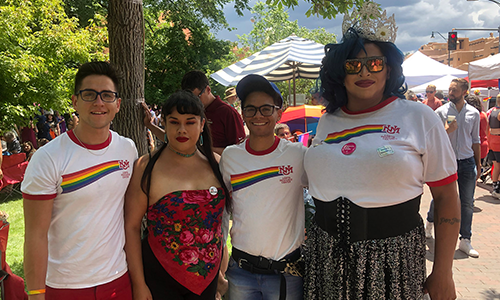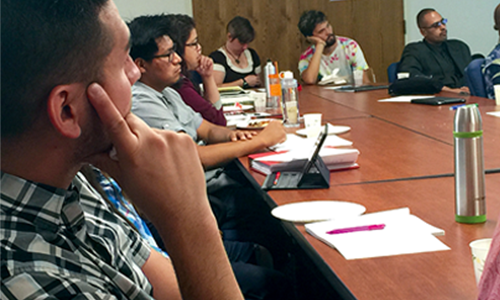Units
The Division for Equity and Inclusion provides direct oversight to the following units of the University: the LGBTQ Resource Center, and the Men of Color Initiative
UNITS
The Lesbian, Gay, Bisexual, Transgender, and Queer/Questioning (LGBTQ)

The Lesbian Gay, Bisexual, Transgender, and Queer/Questioning (LGBTQ) Resource Center strives to create a welcoming and inclusive atmosphere for all members of the University of New Mexico community. As a safe zone environment, the center promotes and values the worth and dignity of all people. Through education and leadership development, the center promotes a more civically engaged campus community committed to equality and equal opportunity for all people.
Director: Frankie Flores
The University of New Mexico (UNM) Men of Color Initiative (MOCI)

The University of New Mexico (UNM) Men of Color Initiative (MOCI) is led by the UNM Division for Equity & Inclusion (DEI) in partnership with campus departments, student clubs and community groups as well as student leaders, faculty, staff and community to increase access and success for male students of color at the university. In 2011-2012 the UNM MOCI will:
- gather and share data and research, including best practices as well as quantitative data, on access and success for men of color at UNM and in higher education as well as successful programs at other schools
- develop a working group to address and take action on access and success for male students of colo
- develop a student-led model project(s) for access and success for male students of color at the university
Director: Rodney Bowe
Institute for the Study of “Race” and Social Justice

Under the direction of Associate VP for Equity and Inclusion Dr. Nancy López, the Institute for the Study of “Race” and Social Justice now resides under DEI. Established in January 2009, the mission of the Institute is to promote the establishment of empirical, theoretical and methodological clarity about "race" that draws on cutting-edge thinking from multiple disciplines and diverse empirical traditions promote clarity about race, racialization that builds on the insights of multiple disciplines; develop strategies for ameliorating race-based inequality.
Director: Dr. Nancy Lopez
